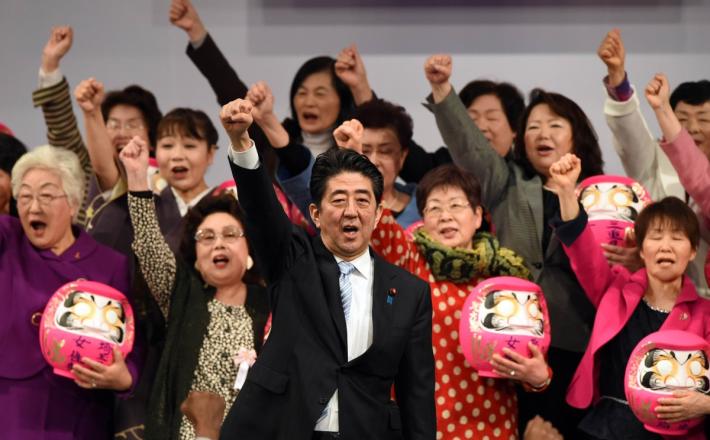Shinzo Abe wanted Japanese women to ‘shine’ in politics. What happened?
Source: South China Morning Post
Like every political leader since Ito Hirobumi became Japan’s very first prime minister in 1885, the next leader of this nation will be a man. And that, say women, is a disappointment given how much outgoing Prime Minister Shinzo Abe insisted that he wanted Japanese women to “shine”. The winner of the ruling party’s election for president of the ruling Liberal Democratic Party will be announced on Monday, with chief cabinet secretary Yoshihide Suga very much the front runner after gaining the support of around 80 per cent of the party’s politicians, including Abe.
Suga, former defence minister Shigeru Ishiba and Fumio Kishida, head of the party’s policy council, have this week been communicating their ambitions for the nation should they be elected, with the economy, dealing with the coronavirus pandemic and relations with Japan’s neighbours the key talking points of their campaigns.
Precious little time has been devoted to the role of women in society and the closely related – and, ultimately, existential – issue of a falling birth rate and a rapidly ageing population.
And that is precisely why a new perspective, a female perspective, is required, women say.
Click here to read the full article published by Souch China Morning Post on 13 September 2020.

Like every political leader since Ito Hirobumi became Japan’s very first prime minister in 1885, the next leader of this nation will be a man. And that, say women, is a disappointment given how much outgoing Prime Minister Shinzo Abe insisted that he wanted Japanese women to “shine”. The winner of the ruling party’s election for president of the ruling Liberal Democratic Party will be announced on Monday, with chief cabinet secretary Yoshihide Suga very much the front runner after gaining the support of around 80 per cent of the party’s politicians, including Abe.
Suga, former defence minister Shigeru Ishiba and Fumio Kishida, head of the party’s policy council, have this week been communicating their ambitions for the nation should they be elected, with the economy, dealing with the coronavirus pandemic and relations with Japan’s neighbours the key talking points of their campaigns.
Precious little time has been devoted to the role of women in society and the closely related – and, ultimately, existential – issue of a falling birth rate and a rapidly ageing population.
And that is precisely why a new perspective, a female perspective, is required, women say.
Click here to read the full article published by Souch China Morning Post on 13 September 2020.